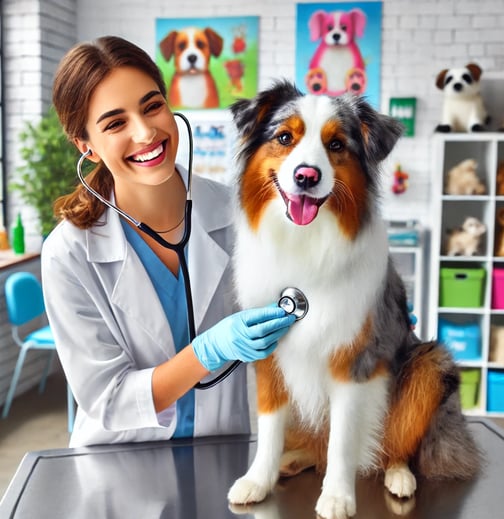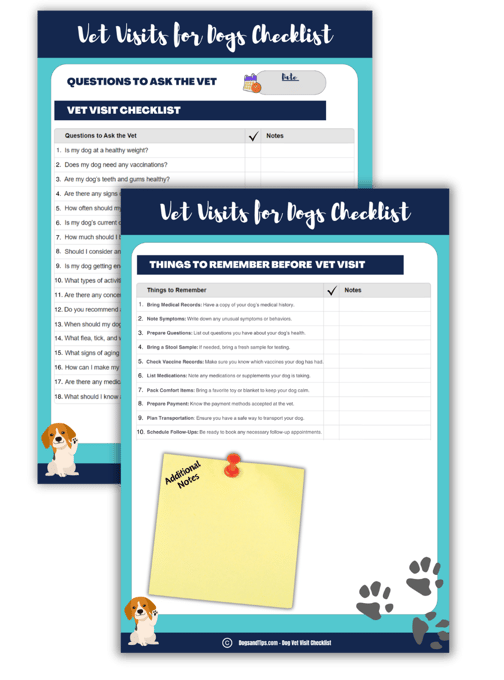Vet Visits For Dogs Questions
Secrets to Your Dog's Health: 28 Must-Ask Questions for Your Next Vet Visit! Are you asking your vet the right questions? You might not be! In this article, we share 28 important questions to ask at your next vet visit. These questions hold the key to a longer, healthier, and happier life for your dog. Don't miss out—your dog deserves the best!
5 min read
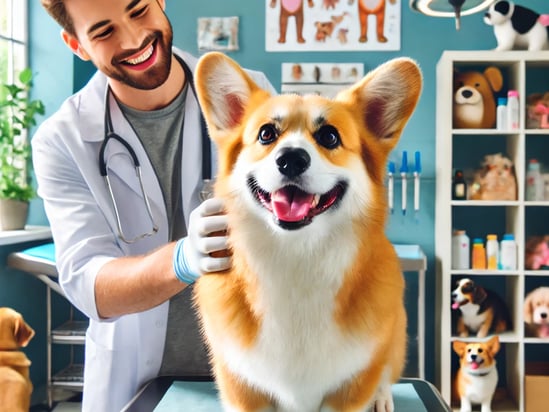

28 Must-Ask Questions for Your Next Vet Visit!
By asking these questions, you can ensure your dog gets the best care possible. Each question helps you keep your dog healthy, happy, and safe, both at home and at the vet’s office.
1. General Health
Your dog's overall health is the foundation of their well-being. These questions help you understand the big picture.
What is my dog's overall health status?
This helps you know if your dog is healthy or if there’s something you need to watch out for. It’s like a yearly check-up for you!
Are there any concerns about my dog's weight?
Weight affects your dog’s joints, energy, and lifespan. Asking this keeps your dog fit and happy.
What should I know about heartworm prevention?
Heartworms are dangerous, but they’re preventable. Knowing what to do keeps your dog safe from these nasty parasites.
How often should I bring my dog in for check-ups?
Regular vet visits catch problems early. It’s better to be safe than sorry!
Are there any new treatments or medications I should know about?
Medicine changes fast. Staying updated gives your dog the best care possible.
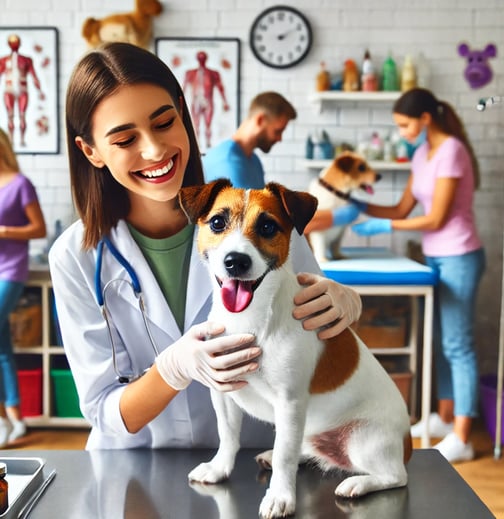

2. Diet and Nutrition
Food fuels your dog’s life. Getting their diet right means more energy and fewer health issues.
How can I improve my dog’s diet?
A good diet means fewer vet visits. It’s the first step to a long, healthy life for your dog.
What type of treats are healthy for my dog?
Treats should be fun, not harmful. Healthy treats keep your dog’s weight in check and prevent tooth problems.
Should I be giving my dog any supplements?
Sometimes, food isn’t enough. Supplements fill in the gaps, keeping your dog’s coat shiny and joints strong.
What should I do if my dog refuses to eat?
A change in appetite can signal a problem. Addressing it quickly keeps your dog from getting sick.
3. Vaccinations and Medications
Vaccines and meds are your dog’s shield against disease. Keeping up with them is key.
What vaccinations does my dog need today?
Vaccines protect your dog from serious illnesses. Make sure they’re up to date to avoid nasty surprises.
Are my dog's current medications still appropriate?
Medications can change over time. Checking in ensures your dog isn’t taking something they no longer need.
4. Parasite Prevention
Parasites are tiny but mighty. Keeping them away is essential for your dog’s comfort and health.
What is the best way to prevent parasites?
Parasites like fleas and ticks are more than just pests—they carry diseases. Prevention saves your dog from a lot of discomfort.
What should I know about heartworm prevention?
Heartworms can be fatal. Prevention is much easier and cheaper than treatment.
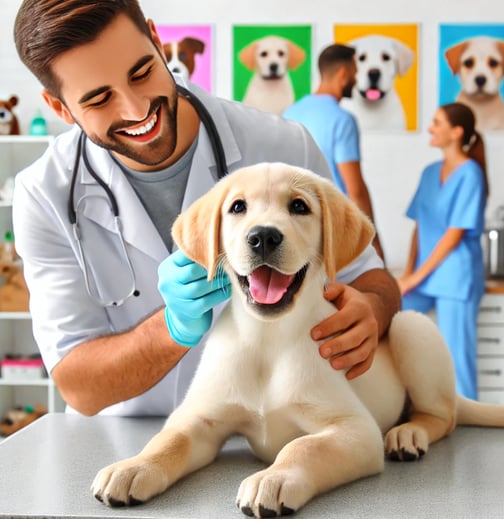

5. Dental Care
A healthy mouth means a healthy dog. Don’t overlook dental care!
Does my dog need a dental cleaning?
Plaque and tartar can cause pain and infections. Regular cleanings prevent serious problems down the line.
How can I keep my dog’s teeth healthy at home?
Daily care at home means fewer professional cleanings and less risk of tooth loss.
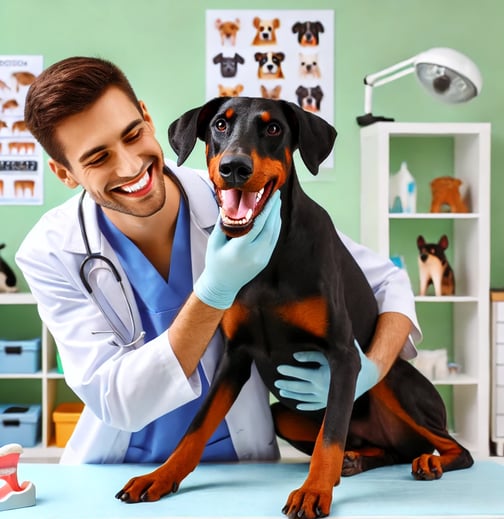

6. Aging and Breed-Specific Concerns
As dogs age, their needs change. Certain breeds also have unique needs.
What signs of aging should I look for in my dog?
Aging comes with changes. Knowing what to expect helps you care for your senior dog better.
Is my dog at risk for any hereditary conditions?
Some breeds are prone to specific issues. Being aware lets you catch problems early.
Is there anything specific to my dog’s breed I should know?
Every breed has its quirks. Understanding them helps you provide the best care possible.
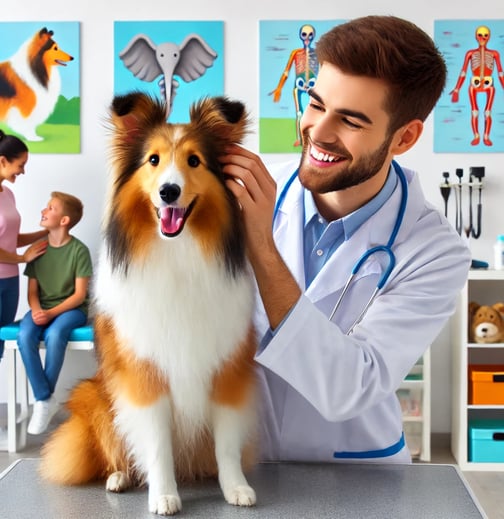

7. Exercise and Grooming
Exercise and grooming keep your dog looking and feeling great.
How much exercise does my dog need?
Exercise keeps your dog’s body and mind sharp. The right amount depends on their age and breed.
How often should my dog be groomed?
Grooming isn’t just for looks. It prevents skin issues and keeps your dog comfortable.
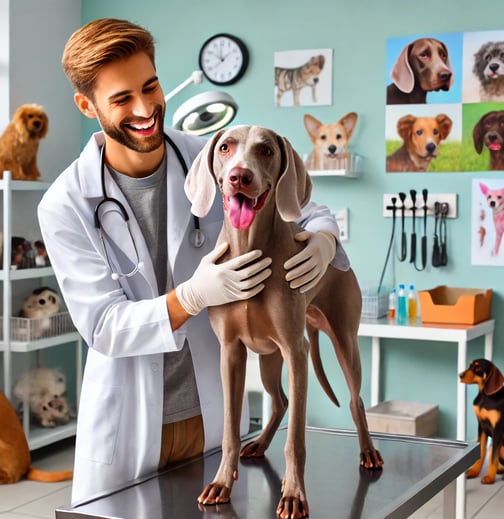

8. Behavioral Concerns
Changes in behavior can be a sign of something deeper. Don’t ignore them!
Are there any behavior changes I should be aware of?
Behavior changes can signal stress or illness. Catching them early prevents bigger problems.
What should I do if my dog is anxious or stressed?
Anxiety can be tough on dogs. Knowing how to calm them keeps everyone happier.
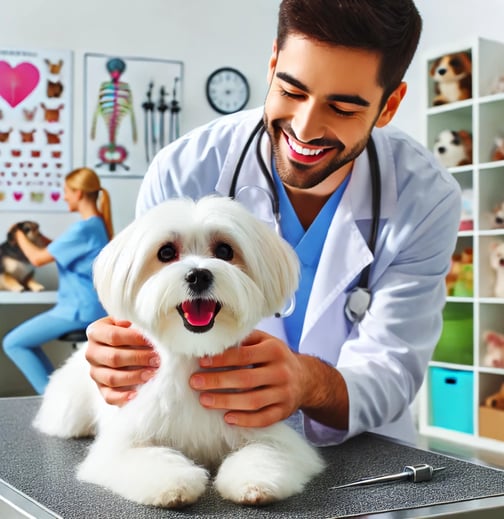

9. Emergency Preparedness
Knowing what to do in an emergency could save your dog’s life.
What should I do if my dog has a medical emergency?
Emergencies are scary. Having a plan helps you stay calm and act fast.
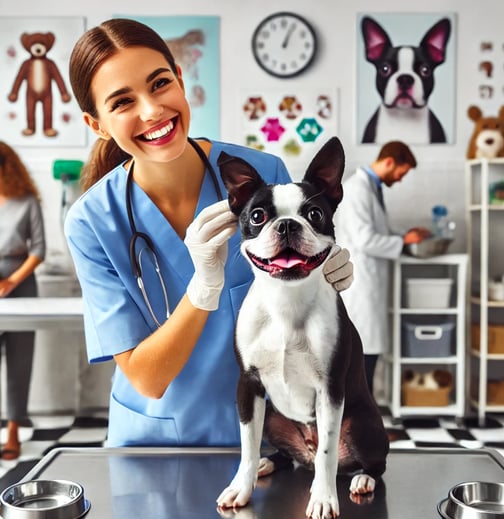

10. Preventive Care
Preventive care is the best way to keep your dog healthy and avoid serious issues.
How can I prevent common illnesses in my dog?
Prevention is better than cure. Simple steps can save your dog from suffering.
What are the signs of a healthy coat and skin?
A shiny coat and clear skin mean your dog is healthy inside and out. It’s one of the first things you’ll notice if something is wrong.
Should I be concerned about lumps or bumps on my dog?
Not all lumps are dangerous, but it’s better to check. Early detection of a problem can make all the difference.
How often should I bring my dog in for check-ups?
Regular check-ups catch problems before they become serious. It’s a simple way to keep your dog healthy.
11. Home Care and Safety
Your home is where your dog spends most of their time. Make sure it’s safe and comfortable.
How can I make my home safer for my dog?
A safe home prevents accidents. Simple changes can protect your dog from common dangers.
Do you want the Questions Above as a Printable Checklist? Click The Checklist below!
Contact
Follow
© DogsAndTips.com - 2024 → ∞

